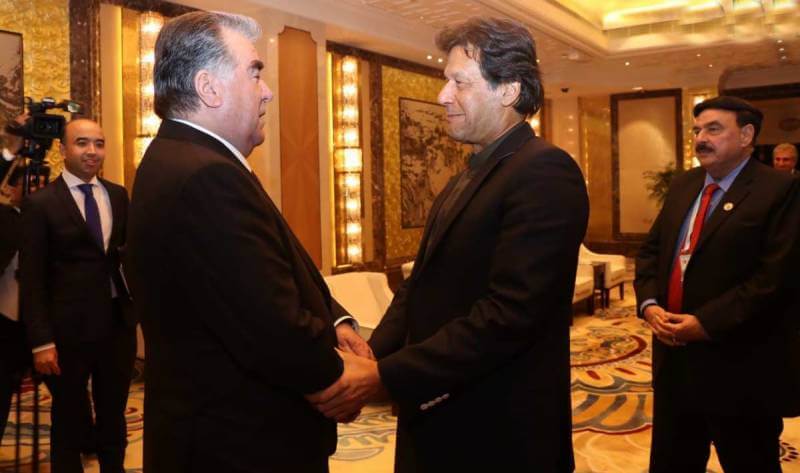Tajik President Emomali Rahmon met with Pakistani Prime Minister (PM) Imran Khan in Islamabad on Wednesday to discuss bilateral and security ties. As part of the discussions, both countries signed several agreements, including a defence deal, under which Pakistan will sell domestically manufactured arms to Tajikistan.
Khan said that they “discussed and signed MoUs on how to meet Tajikistan’s requirement for the kind of weapons that Pakistan makes” and it was “very important” that Dushanbe and Islamabad improve cooperation in defence. No further comments were made by either Khan or Rahmon on the sale of weapons. However, the Pakistani Foreign Ministry tweeted that Rahmon’s visit to Islamabad “is in line with Pakistan’s vision of enhancing the strategic partnership with Central Asian States, for regional connectivity and integration.”
Pakistan has also, previously, expressed its willingness to strengthen bilateral defence cooperation with Tajikistan. Last year, the Chairman of Pakistan’s Joint Chief of Staff Committee, Nadeem Raza, visited the Central Asian country to improve military ties and discuss joint cooperation in the fields of security and counter-terrorism, especially with regards to Afghanistan.
In this respect, both leaders stressed the importance of maintaining peace in Afghanistan and agreed that stability in the war-torn country was crucial for improving bilateral ties, especially trade and connectivity. “Our trade will be affected because of [decreased] connectivity if anarchy spreads there and second, we fear that terrorism will increase,” Khan added.
Khan also compared the United States’ (US) withdrawal from Afghanistan to the Soviet’s departure in 1989, which resulted in widespread violence all over the country. He said that Pakistan and Tajikistan feared a “similar situation” could emergy in Afghanistan once US troops leave the country.
In April, the US administration led by President Joe Biden announced its decision to withdraw all American troops from the war-torn nation before the 20th anniversary of 9/11 this year. The US is expected to begin a drawdown of its forces before May 1, which is the deadline for complete troop withdrawal under the terms of the US-Taliban peace deal signed last February.
Apart from security-related talks, both leaders also discussed the need to promote trade and economic cooperation. Accordingly, they agreed to cooperate in the fields of investment, transport, energy, tourism, and connectivity. Rahmon hailed Pakistan as an important partner for Tajikistan at the global stage, adding that the Pakistan-Tajikistan joint intergovernmental commission on trade, economic, scientific, and technical cooperation played a “significant role” in furthering bilateral relations.
The Pakistani PM also mentioned that he had talked about the issue of climate change and global warming with Rahmon, as it affected both countries. “If the whole world doesn’t act on global warming, then upcoming generations of both countries will be in danger so we have decided to further raise our voice on climate change,” Khan said.
In a separate meeting, Tajik Foreign Minister Sirojiddin Muhriddin held talks with his Pakistani counterpart Shah Mahmood Qureshi to discuss regional and international issues. Both envoys also emphasised the need to strengthen “inter-parliamentary ties [and] revitalisation of culture and tourism spheres.”
All in all, the visit of Rahmon to Islamabad highlighted the need for Pakistan and Tajikistan to improve ties in all major fields, especially in light of the deteriorating security situation in Afghanistan.
Pakistan Signs Arms Agreement With Tajikistan During Rahmon’s Visit to Islamabad
The deal comes at a time when Pakistan and Tajikistan are concerned over the deteriorating security situation in Afghanistan following the US decision to withdraw its troops.
June 4, 2021

Tajik President Emomali Rahmon and Pakistani PM Imran Khan SOURCE: PAKISTANI FOREIGN OFFICE
